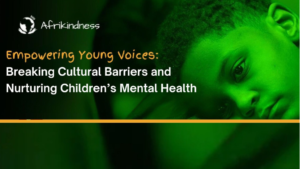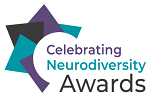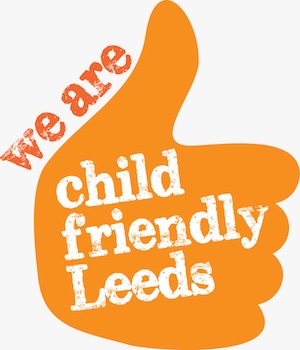Did you know that most adult mental illnesses and challenges can be traced back to childhood?
Studies show that mental health problems that first appear in childhood are likely to persist into adulthood. Many mental health conditions show their first signs in childhood and can become serious if left untreated. But, too often, children and young people’s mental health and emotional well-being are not given the attention it needs.
While physical health is important to the growth of any child, mental health is just as crucial to a child’s overall happiness and development.
Mental health refers to a person’s overall psychological well-being. It encompasses the emotional, psychological, and social aspects of an individual’s life and includes how they think, feel, and behave. Good mental health enables people to cope with the everyday stresses of life, work productively, and contribute to their communities. On the other hand, poor mental health can lead to problems such as anxiety, depression, and substance abuse.
As parents and caregivers, our child’s overall well-being mental, physical, and emotional should be our top-most priority.
In the UK, children’s mental health is a growing concern, with increasing numbers of children experiencing mental health problems. According to recent studies, 18.0% of children aged 7 to 16 years and 22.0% of young people aged 17 to 24 years had a probable mental disorder in 2022.
The starting point to supporting children and young people is understanding the many risk factors that may challenge their mental health.
- Adverse childhood experiences
Childhood experiences such as physical or sexual abuse, violence, poverty, and domestic conflicts impact mental health. What risk factors affect children around you?
- Race and ethnicity
A survey by Mind in 2021 found that 70% of children who experienced racism in school stated that the experience impacted their well-being. Minority youth have more identities than their racial or ethnic identity, including socioeconomic status, documentation status, sexual orientation, and cognitive and physical abilities. Such complexities contribute significantly to mental health difficulties among ethnic and racial minority youth.
- Gender and sexual identity
According to the NHS digital report, “Boys aged 6 to 10 years were more likely to have a probable mental disorder (21.9%) than girls (12.0%). In 17- to 23-year-olds, this pattern was reversed, with rates higher in young women (23.5%) than young men (10.7%).
Multiple risk factors can make a child or young person susceptible to mental health problems.
As such, as parents, it is important to understand these risk factors and acknowledge that the struggle is REAL.
So how do we support our children and young people?
Research has shown that building a strong support system and promoting healthy social connections can profoundly impact a child’s mental health.
Social support refers to the relationships and connections a child has with family members, friends, and others in their community. When children have a strong network of support, they feel valued, cared for, and secure. This sense of security and belonging can help to boost self-esteem and resilience and reduce stress, anxiety, and depression.
Strong social connections also benefit children’s mental health because it provides a sense of security and stability. Children who feel connected to others are more likely to have positive relationships, which can provide them with comfort and a sense of belonging. This sense of security can help children to manage stress and reduce the risk of developing mental health problems.
For children, building and maintaining relationships is not just about having fun and enjoying each other’s company but also about developing the skills they need to navigate life’s challenges. Children learn important social skills, such as communication, cooperation, empathy, and problem-solving, through their interactions with others.
However, building strong social connections and a supportive network requires time and effort.
Here are some tips for promoting healthy social connections for your child.
- Support your child’s friendships: You can show support to strengthen your child’s social connections by hosting playdates or encouraging your child to attend a friend’s birthday party and giving gifts.
- Get involved in your child’s life: Ask them about their day and what they did with their friends. This can help you to understand your child’s social experiences and offer support where needed.
- Provide opportunities for social interaction: Participating in sports, clubs, Arts and Crafts, and other activities that interest your child can provide opportunities to make friends and build relationships.
- Encourage positive relationships: Teach your child how to form positive relationships, such as volunteering to help out and complimenting friends, and discourage negative relationships based on teasing, bullying, or exclusion.
- Foster communication: Encourage your child to express their thoughts and feelings and listen to what others have to say. This will help them to develop strong communication skills and understand different perspectives.
- Teach empathy: Encourage your child to put themselves in others’ shoes and to understand and appreciate the feelings and experiences of others.
- Model good friendship skills: Be an example to your child on how good friends and relationships work. Let them see how you relate with your family, friends, and those around you from home. Because children emulate what they see, this will serve as a foundation for how they relate with others.
- Foster self-esteem: Build your child’s self-esteem by encouraging their interests and strengths and providing opportunities to feel proud of their accomplishments. Children with high self-esteem are more likely to build positive relationships with others.
- Know your child’s limits and treat them accordingly: Extroverts often spend more time in large gatherings and social groups, while introverts might spend less time in social gatherings. Whether you have an extroverted or introverted child, treat every child’s personality according to who they are.
- Teach communication skills: Teach your child effective communication skills, such as active listening, expressing feelings and empathy, and resolving conflicts. These skills can help your child build and maintain healthy relationships with others.
Building strong social connections and promoting positive relationships are essential for children’s mental health. Parents and caregivers play a crucial role in helping children develop strong social connections. Encourage your child to form positive relationships, provide opportunities for social interaction, and support their friendships. Providing children with a supportive and nurturing environment can help ensure that children grow up with healthy minds and happy hearts.
#ChildrenMentalHealth week highlights the importance of connecting with others in healthy, rewarding, and meaningful ways.
#Parents, let’s CONNECT.
REACH OUT!
We hope that we all have meaningful conversations with our children, connect with others from diverse cultures and race, and build great friendships.
It is important for their mental health and ours too.
Here is a video on facts and tips.
#ChildrenMentalHealth #LetsConnect #Parenting
Written by Timilehin Ariyo









